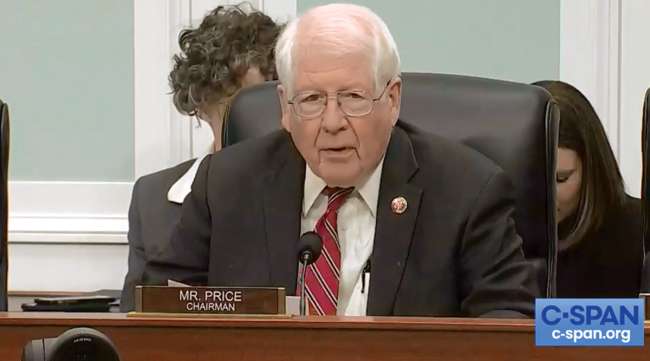Senior Reporter
House Passes Fiscal 2021 Transportation Funding Bill

[Stay on top of transportation news: Get TTNews in your inbox.]
A package of fiscal 2021 appropriations bills that included the Transportation, and Housing and Urban Development, and Related Agencies measure recently passed the U.S. House of Representatives. The Senate has yet to consider its legislative version.
The House bill, which received a 217-197 vote, would provide the Federal Motor Carrier Safety Administration $881 million for its operations. The proposed allocation would be a $202 million increase from the fiscal 2020-enacted level, and $179 million more than the president’s request.
Transportation, and Housing and Urban Development, and Related Agencies Subcommittee Chairman David Price (D-N.C.) noted, “Throughout the bill, we focus on improved safety, the needs of underserved people and communities, and resiliency in the face of a changing climate. ‘Infrastructure Week’ shouldn’t be a punchline. This funding is necessary for our future prosperity, especially as we transition from pandemic to recovery.”
According to Appropriations Committee Chairwoman Nita Lowey (D-N.Y.) the bill:
- Provides strong funding and protections to prioritize public health and safety.
- Addresses police reform.
- Invests in education and job training.
- Expands access to safe, affordable and fair housing.
- Supports service members and military families.
- Combats climate change and embraces a clean energy future.

Lowey
“I am also proud that the package includes strong emergency appropriations to confront coronavirus and support economic recovery,” Lowey added.
The House bill would provide $107.2 billion for the U.S. Department of Transportation, an increase of $21.1 billion from the fiscal 2020-enacted level and $19.4 billion more than the president’s request. The legislation also proposes $62.9 billion for the Federal Highway Administration. It would provide the Federal Transit Administration $18.9 billion; and the Federal Aviation Administration would receive $18.1 billion. The measure also would match the president’s request by providing $1 billion for infrastructure grants.
In response to the COVID-19 pandemic, under the bill states and municipalities would receive supplemental aid for transportation and housing programs totaling $75 billion. Top Republicans in the House rejected the measure.

Granger
“I am disappointed by both the process that got us here and the product that was produced. The Appropriations Committee has a strong tradition of working together and seeking consensus where we can. Unfortunately, that wasn’t the case for the annual funding bills that moved through the committee and the House floor over the last month,” said committee ranking Republican Kay Granger of Texas. “Democrats walked away from a bipartisan budget agreement that was made just last year and jammed through partisan messaging bills that will add to our skyrocketing national debt.”
Senate Appropriations Committee Chairman Richard Shelby (R-Ala.) has not scheduled consideration of the fiscal 2021 transportation measure. The GOP-controlled Senate has lagged in its consideration of the appropriations measures, raising the possibility of taking up the bills after the November elections.
Senators have feuded along partisan lines about the ability to offer amendments related to law enforcement and the pandemic. Considering appropriations bills that would allow Democrats to present high-profile amendments would put a spotlight on lawmakers who vote on political issues.
When Congress resumes its legislative schedule after the August recess, a focus is likely to be placed on approving temporary funding stopgaps that would avert a partial shutdown of federal agencies at the end of the fiscal year Sept. 30. To avert a shutdown of certain agencies prior to the start of the next fiscal year, Congress would have to send to the president’s desk for enactment either fiscal 2021 funding legislation or temporary funding bills.
Want more news? Listen to today's daily briefing:
Subscribe: Apple Podcasts | Spotify | Amazon Alexa | Google Assistant | More




